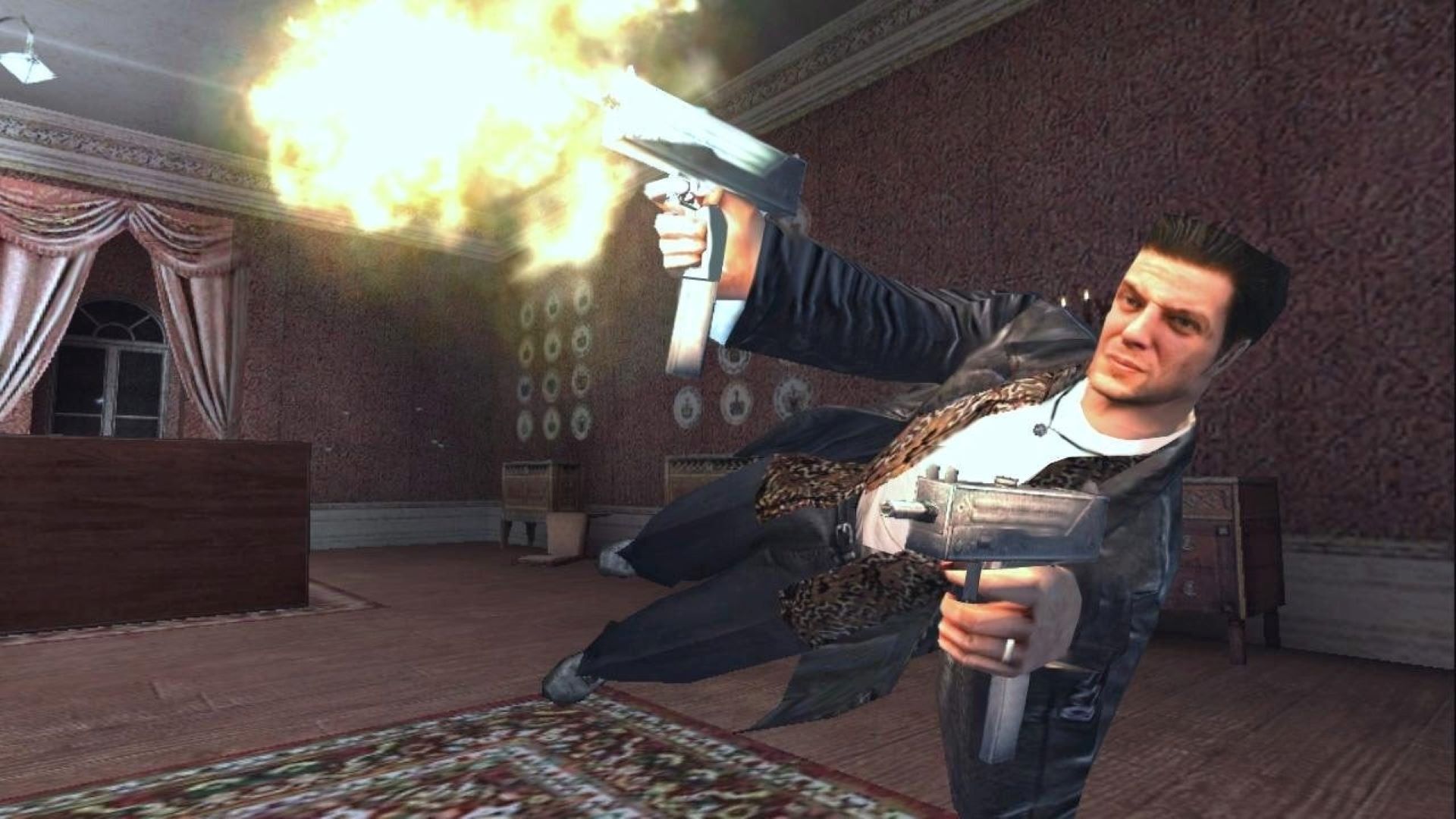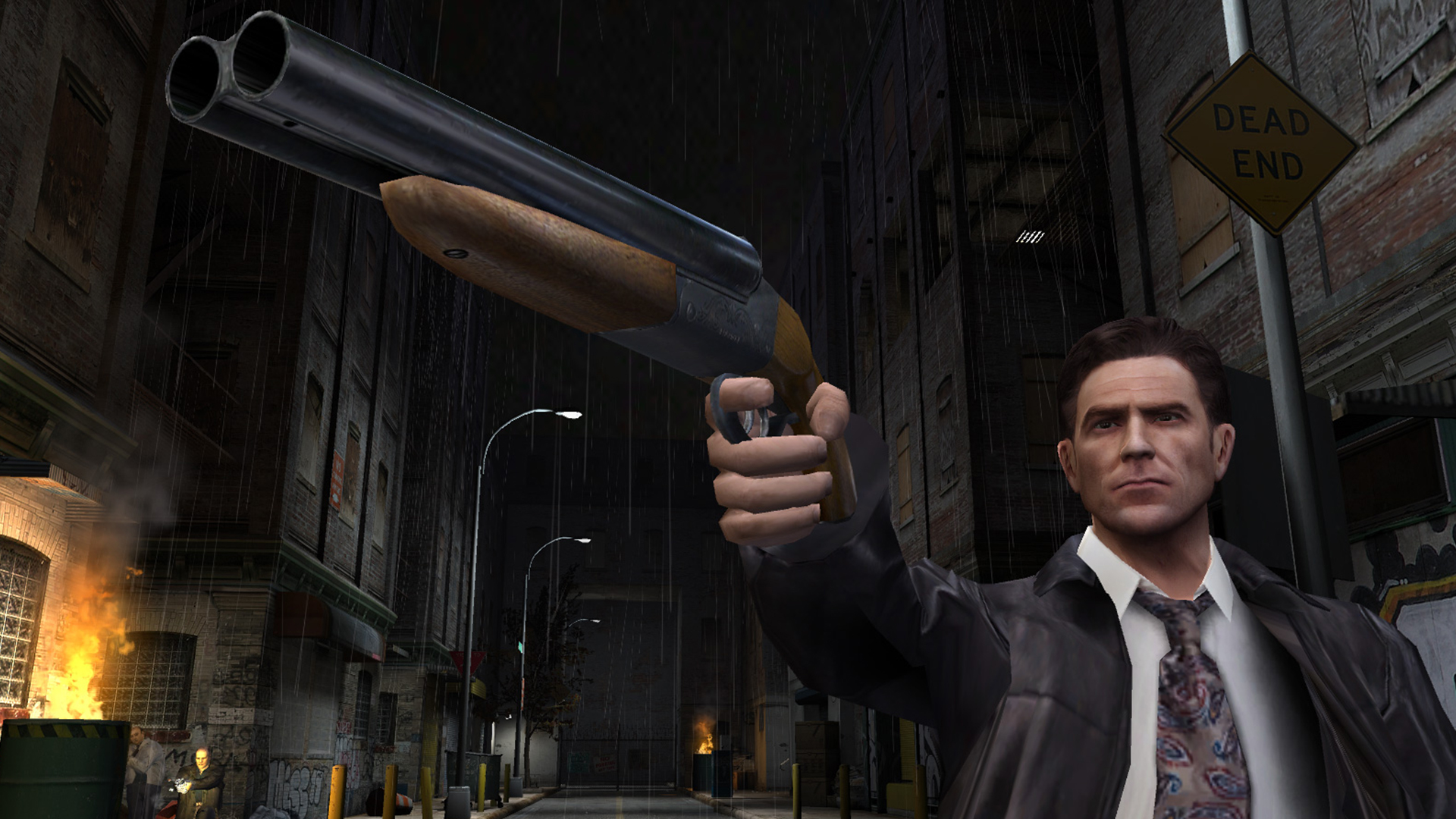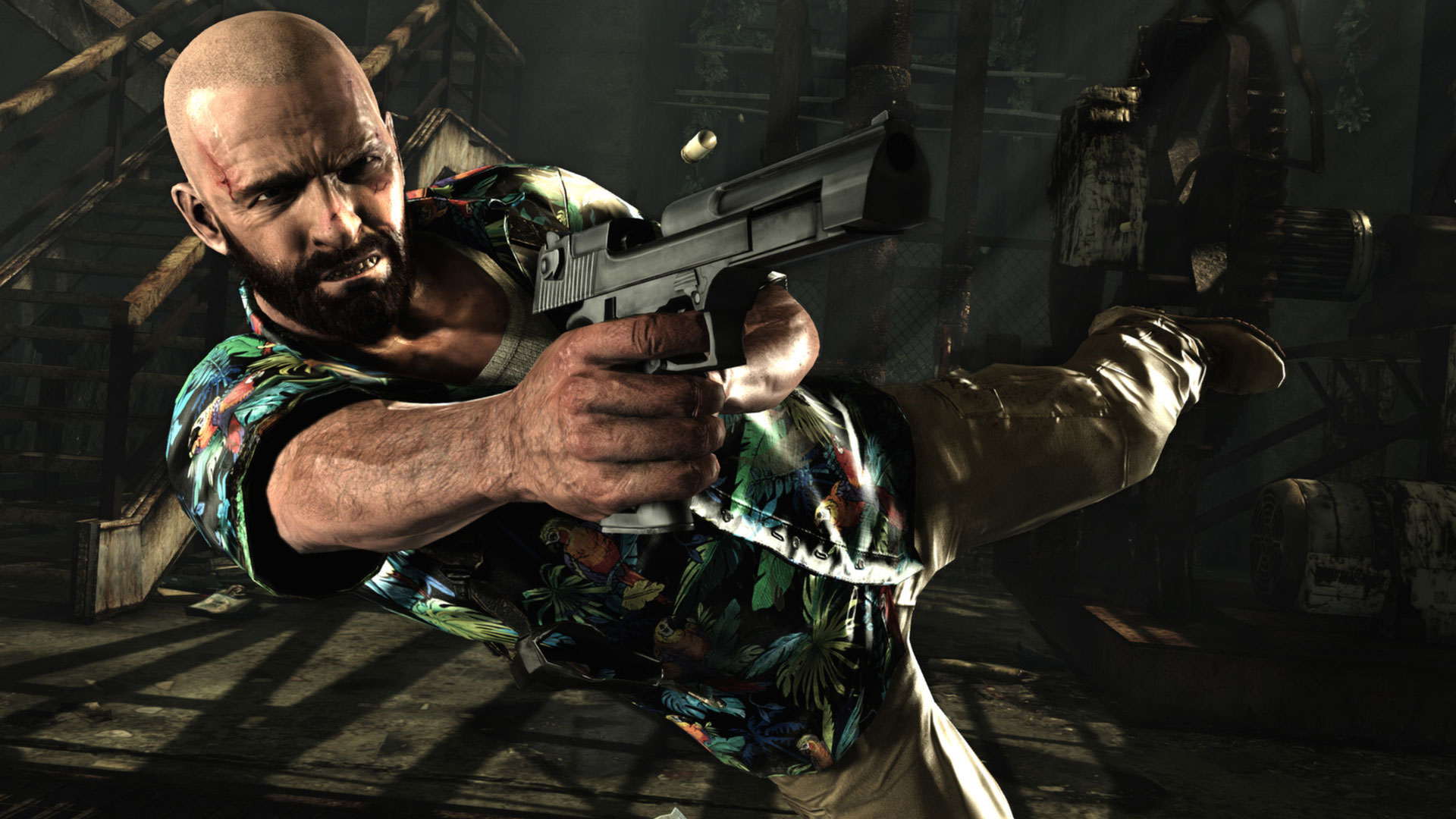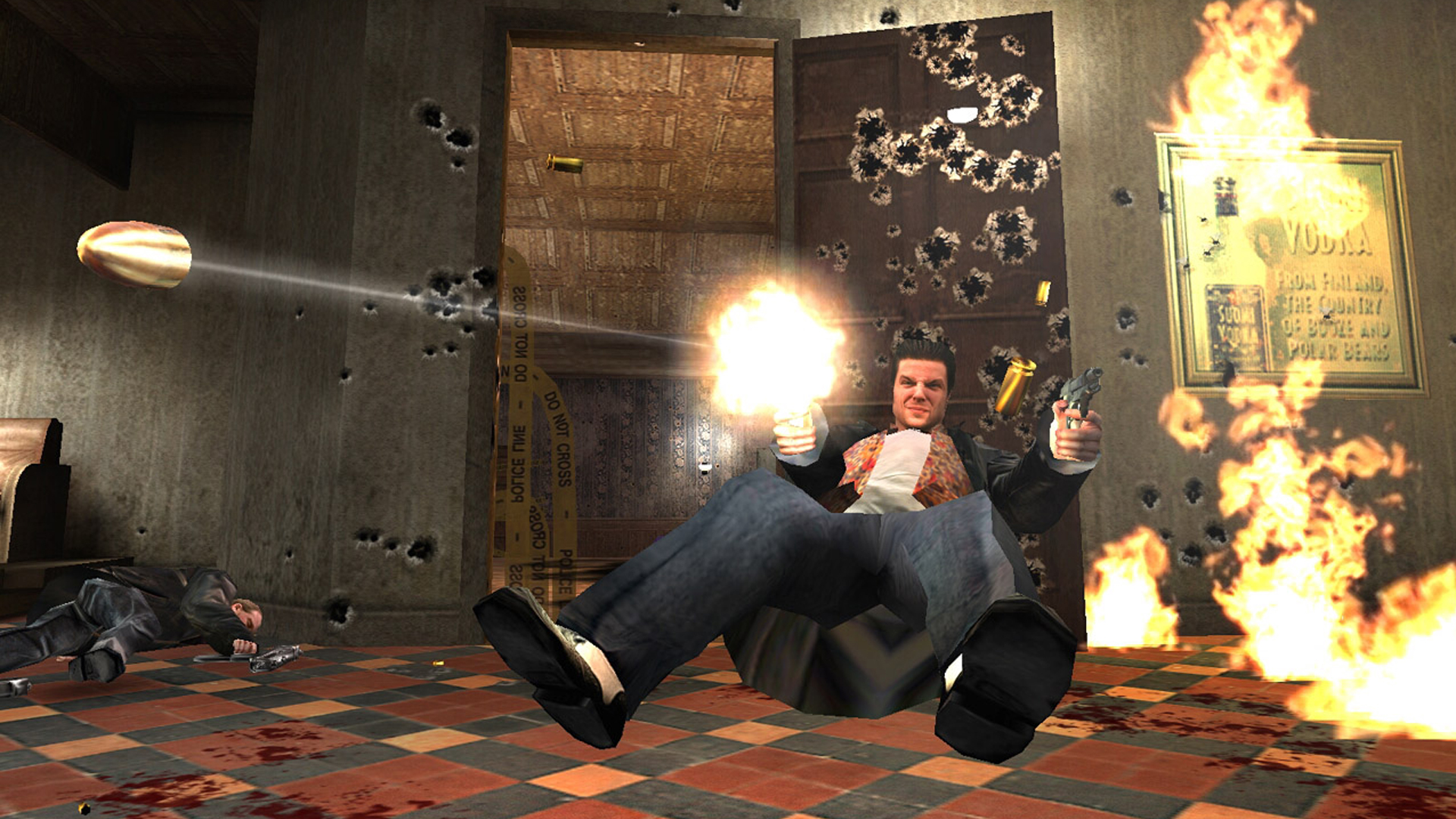Why the Max Payne remake is as much a risk for Rockstar as it is Remedy
It's early days for the Max Payne remakes, but both Rockstar and Remedy have their work cut out for them

My friends and I are sitting in the living room of an old farm house in Falcarragh, a small town in northwest Donegal. It's pissing rain outside, so instead of spending the afternoon at the beach as planned on the first day of our two-week holiday in Ireland, we're huddled around a CRT television playing Max Payne on my mate's PS2. My pal's just fallen from a darkened room into the abyss for the fourth straight time, as a baby screams blue murder somewhere in the distance. Third-person games with tank controls aren't built for tightrope levels like this one, and this dream sequence labyrinth just over halfway through Max Payne really is a nightmare.
Fuck this, my mate says as he passes me the control pad. It's a sentiment shared. Can't we just have bullet-time, like, all the time?
Return of the Max

"The buzz of bursting through a doorway, airborne and at half-speed, really was second to none."
While not the first video game to include the slow-motion visual effect now widely known as 'bullet-time', Max Payne certainly popularised it. Developed by Remedy Entertainment and released across PC, PS2 and Xbox between the summer of 2001 and early 2002, the third-person action game followed movies such as Blade and The Matrix, whose iconic portrayals of slo-mo shoot-outs captured the hearts of cinema-goers the world over. Despite telling a pretty sophisticated tale of love and loss, retribution, and multi-agency conspiracy, Max Payne is remembered as the game that let you glide through the air, arms aloft, discharging two NYPD-issue 92fs Berettas with careless abandon. Two decades on, with this very memory in mind, and the idea of a Max Payne remake fills me with excitement and apprehension.
For one, bullet-time in video games is no longer novel. It'd be unfair to say the first Max Payne (and indeed its 2003 sequel) was defined by its slow-motion firefights, but the mechanic was certainly central to its design. Everything from level layouts to enemy placement and boss battles were hinged on shrewd bullet-time meter management, and the buzz of bursting through a doorway, airborne and at half-speed, really was second to none. Fast forward 20 years, and everything from Red Dead Redemption to Horizon Zero Dawn, Dishonored, Superhot, and Remedy's own Quantum Break have harnessed time-bending features to varying degrees among many other examples. The ability to slow things down or speed things up on the fly in games, in fact, could now just as well fit among the most popular video game cliches.
Add this to Max Payne's fervent fanbase, one who is suitably buzzing at the prospect of the first and second games being remade, and Remedy truly has its work cut out for it here. The Mark Wahlberg-starring Max Payne movie of 2008 was, to put it politely, a bit of a flop, but the Rockstar Studios-developed Max Payne 3 that released four years later restored the series' sovereign status with a larger than life narrative, once more underpinned by bullet-time and, this time, the addition of tactical cover mechanics. Moreover, the fact that the remakes are set to be "in line with a typical Remedy AAA-game production" in scale terms bodes well, as does Rockstar's involvement – the latter of who, for me, has as much at stake here as Remedy.
Point to prove

The fact that Rockstar is on board at all to revisit games now over 20 years old is somewhat out of character, and while GTA Online continues to go from strength to strength some nine years on, I can't help but think the Grand Theft Auto developer is in a process of reevaluating its image. As I discussed in the immediate wake of GTA 6's "in-development" announcement, Rockstar's position in today's video game landscape isn't the same as it was a decade ago. Gone are the days of internet-breaking, five-character tweets, and in their place is a company dealing with a far more reactive (and often reactionary) audience with more evolved wants and needs. The turbulent launch of last year's Grand Theft Auto: The Trilogy – The Definitive Edition, and the subsequent backlash it received, highlighted rare vulnerabilities in Rockstar's otherwise meticulous practice, and, peeking over the fence at its other big live-service venture, Red Dead Online, a distinguished group of disgruntled players are actively campaigning against the developer's perceived lack of interest in their favorite game.
None of this is to say Rockstar is on the back foot – GTA Online has since recorded record player numbers with the launch of its Dr Dre-featuring The Contract update – but with nostalgia-driven projects in mind, it will be as keen as anyone to nail down the upcoming Max Payne remakes, and ensure they not only land without a hitch, but also satisfy both old and new audiences.
Weekly digests, tales from the communities you love, and more

So where does that leave us? It leaves us with Remedy, who first brought Max Payne to life way back at the turn of the millennium, in the driving seat. It sees the developer returning to a series it last worked on in 2003, having since graced us with the likes of Alan Wake, Quantum Break, and 2019's absolutely wonderful Control. It sees Rockstar involved – the GTA dev itself having published the original games and having developed Max Payne 3 in 2012 – and more aware of nostalgic deference than ever before. And it sees us, the players, waiting with bated breath.
Who will be the face of Max Payne in the Remedy/Rockstar remake? Listen, I'd love it to be Sam Lake as per the originals. But, what I want more than anything at this stage, is a fairer crack at those mind-numbing nightmare sequences. And if bullet-time is less attractive than it was 20 years ago, I can't wait to see how Remedy fleshes out the rest of Max's odyssey.
If you like Grand Theft Auto and Max Payne, you might fancy checking out the best games like GTA.

Joe Donnelly is a sports editor from Glasgow and former features editor at GamesRadar+. A mental health advocate, Joe has written about video games and mental health for The Guardian, New Statesman, VICE, PC Gamer and many more, and believes the interactive nature of video games makes them uniquely placed to educate and inform. His book Checkpoint considers the complex intersections of video games and mental health, and was shortlisted for Scotland's National Book of the Year for non-fiction in 2021. As familiar with the streets of Los Santos as he is the west of Scotland, Joe can often be found living his best and worst lives in GTA Online and its PC role-playing scene.


